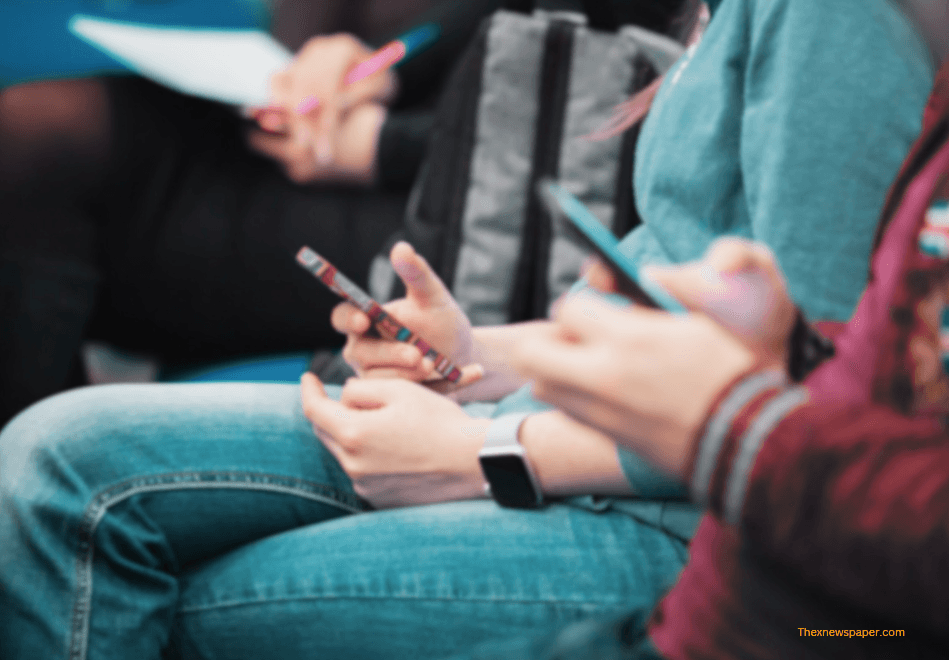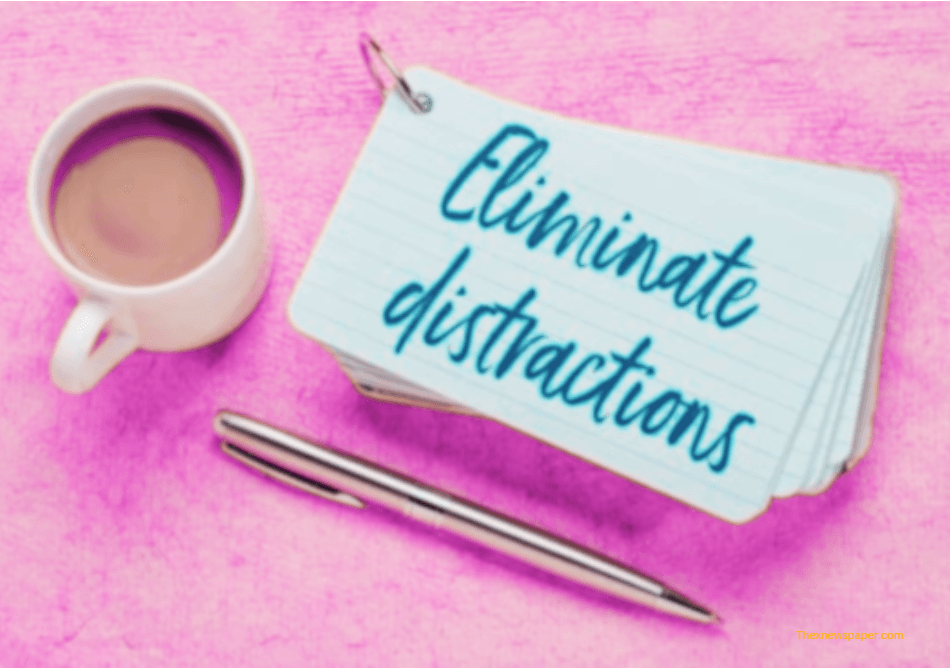In today’s digitally world, studying has become an incredibly tasking thing. Although smartphones have become the number one distractions taking our attention away from what we are supposed to do and to what we do not want. If you want to perform well academically, you have to know how to prevent distractions and create good habits with concentration. We are on a mission to discuss proven ways to ensure your students focus on their studies and avoid getting distracted by Phone in this comprehensive guide.
Why it is so important to focus on studying.
Academic success, the cornerstone is focus. The ability to focus on study for an hour goes beyond exam performance and is critical in building routes towards long term personal and professional growth. If you focus, you hold on to information better, understand concepts better, achieve mastery of subjects better.
Benefits of Focused Studying:
- Enhanced Memory Retention: Meditating has been known to develop a focused mind…
- Improved Academic Performance: The more concentrated you were, the better grades you did and the better results you got.
- Future Readiness: Focus gives students what they need for professional success.
1. The Strategies to limit Smartphone Usage While putting the brain to work.

While beneficial, smartphones tend to be the greatest impediment to concentration while studying. Adopting these strategies can help keep distractions at bay:
- Turn Off Notifications
Hiding prompters of notifications that decrease your urge to check your phone to deactivate. - Use Focus-Enhancing Apps
If you need to resist the apps to stay productive, consider apps such as Forest, StayFocusd and Focus@Will. - Place Your Phone Away
You will cut off temptation for physically removing your phone from your study area by simply removing it in the first place. A good solution for school children to have the parents ask their phones to be put away during their study time. - Set Phone Usage Limits
Set specific time to use your smartphone and stick to it. It limits impulsively using the phone during study hours.
2. About designing the perfect study environment
Study space has a great influence on your productivity and concentration. Follow these tips to create an ideal environment for studying:
- Choose a Quiet Spot: Avoid places where TVs, music or high traffic areas exist.
- Declutter Your Desk: A tidy space leads to a tidy mind.
- Proper Lighting: Try to prevent eye strain by letting lots of natural or bright lighting.
- Keep Essentials Close: Eagerly avoid getting too distracted by ensuring that you have water, stationery and study materials right within arm’s length.
3. Remember not to learn for the exams but for understanding.
Sometimes, we mug up the information without understanding, the memory power is good for short time and no interest in what we are learning. Instead, understand the subject well.
Techniques to Foster Understanding:
Break Down Complex Concepts: Make ideas smaller, simpler and easier to understand.
Leverage Visual Aids: Other than that, use diagrams, charts, mind maps, e.t.c to assist you in retaining relevant information.
Connect to Real Life: Link topics with people’s daily life experiences to make it easier to understand.
Teach Others: In fact, explaining something to someone else makes you remember it very well.
4. Taking breaks the science behind it.

The more you indulge in continuous studying without breaks, the more it will lead you to burnout, lack of focus and less efficiency.
Best Practices for Taking Breaks:
- Stretch or Move: You are kept energized with physical activity during breaks.
- Avoid screens: Instead, instead of spending your time scrolling on social media, go ahead and take breaks to relax.
- Chai Break: Have a quick tea break to go from grounded to out of your mind.
5. How a Healthy Lifestyle Can Support Focus
- Importance of Sleep
The more rested the brain, the more awake and more able to absorb information it is. Sleep seven to 8 hours every night. - Stay Hydrated
Dehydration can cause Dad to be more tired and unable to concentrate as well. Drink lots of water. - Eat Brain-Boosting Foods
To improve cognitive functions include almonds, Spinach, eggs and fruits like bananas in your diet. - Exercise Regularly
As simple as it sounds, exercises such as walking or yoga increase blood flow to the brain which will help you have better focus and productivity.
6. How to Focus on Studying and Avoid Distractions Like Smartphones: A Deep Dive (2019-2025)
In such a tech dominated world, studying has become an increasing challenge. The rise of social media, gaming and digital social communication tools has rocketed smartphone usage by students between 2019 and 2025. As for these technologies, they offer possibilities for learning, but also unique ways of making it difficult. In this guide, we share insights, trends and forward thinking regarding how to overcome distraction through actionable studying strategies.
Trends in Smartphone Usage Among Students (2019–2025)
| Year | Average Screen Time (per day) | Most Used Apps | Education Technology Growth (%) |
|---|---|---|---|
| 2019 | 3.5 hours | WhatsApp, Instagram | 12% |
| 2020 | 4.2 hours | TikTok, YouTube | 18% |
| 2021 | 4.8 hours | Instagram, Snapchat | 24% |
| 2022 | 5.1 hours | YouTube, Discord | 30% |
| 2023 | 5.5 hours | Telegram, TikTok | 35% |
| 2024 | 6.0 hours (estimated) | Threads, YouTube Shorts | 40% |
| 2025 | 6.5 hours (projected) | AI-driven social apps | 45% |
7. Understanding Why Finding that Focus for Studies in Your Daily Life Is Crucial for Your Future

It lays the foundation for career success: during study sessions, focus is placed on a strong strong. In competitive industries, critical thinking, problem solving, plus technical skills are in great demand between 2019 and 2025. Focusing on studies today prepares students for challenges like:
AI Driven Workplaces (2025)
- Learning how to develop simultaneous knowledge across disciplines to adapt to fast pace change across all careers.
- How to build the mental resilience against increasing technological distractions.
Key Insights on Focus
- 2019: A research found out that students who do not keep distractions while studying score 20 percent higher on exams.
- 2024: It was found that when multitasking (e.g. studying and looking at your smartphone) cognitive efficiency drops 40%.
8. Distraction Free Study Zone: How

Step-by-Step Guide
Create a Study Space Dedicated to You
- 2019 Insight: Memory retention is enhanced 15% by quiet environments.
- Have handy furniture that can reduce your fatigue.
- Taking time to declutter your desk really helps you concentrate.
Pomodoro technique: Take advantage of it.
- Take 25 minutes of study, break up for 5 minutes.
- Do four cycles and then go for a longer 15–30 minute break.
- Future Outlook (2025): Pomodoro will now be available in AI enabled apps and they’ll provide personalized insights.
Adopt Screen-Free Study Hours
- Print it out or use physical book instead of digital notes.
- Apps like Freedom and StayFocusd will help block distracting websites.
9. Morning Routines for Success
It’s been shown that starting your day with purpose has benefits. A 2022 study found that structured routines in the first part of your day, such as exercise, meditation or journaling, can increase your productivity by 30 percent.
2025 Make Your Rule Sample Morning Routine
6:30 AM: Wake up and hydrate.
6:45 AM: Forget about all that; mindfulness or yoga.
7:00 AM: Brain friendly breakfast: – Eat: (oats, fruits, nuts).
7:30 AM: Reviewing study goals for the day.
10. Breaks and a Balanced LifeStyle
They help beat mental fatigue by offering breaks. According to the 2023 research from Harvard University, students who take short active breaks are a whopping 22% more productive than those who study through.
Break Suggestions
- Walk outside for fresh air.
- Play instrumental music to calm you.
- Reset your focus for 5 minutes and meditate.
Future Perspective (2025)
- AI-based wearables will warn you to take a brain optimized break at the right time according to your mental workload.
Future Outlook: In a Digitally Enhanced World (2025).

By 2025, digital tools will dominate education, with features like:
- Personalized Learning Pathways: Platforms based on AI will customise study materials according to your pace.
- Virtual Reality (VR) Study Spaces: Focused learning immersion, distraction free environments.
- Neuro-feedback Tools: Real time feedback on concentration levels will be coming from wearables.
That don’t mean that the fundamentals of focus and discipline doesn’t still apply. The key is learning how to follow a healthy stride between utilizing technology and retaining some self rein.
if you have any problem with this content or anything else related to this blog, please contact us. link
